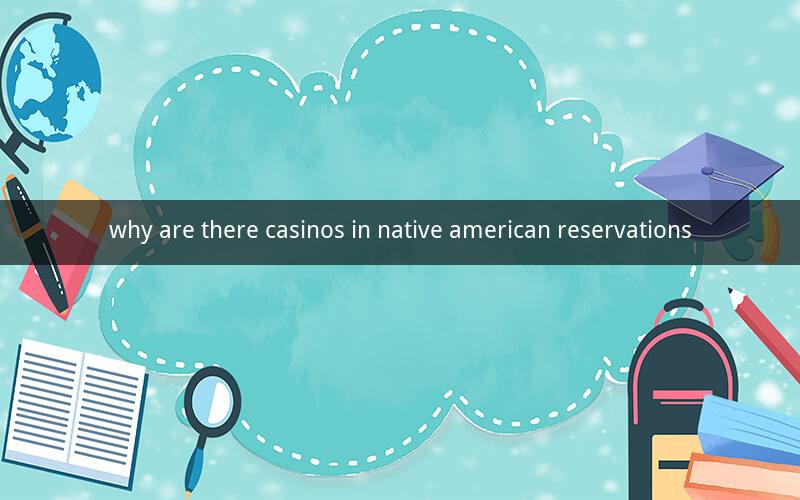
Table of Contents
1. Introduction to Native American Reservations
2. The Historical Context of Casinos in Native American Reservations
3. Economic Benefits of Casinos on Reservations
4. The Social Impact of Casinos in Native American Communities
5. Legal and Ethical Considerations
6. The Role of Gaming Tribes in the Casino Industry
7. Challenges and Controversies
8. Future Prospects for Casinos on Native American Reservations
9. Conclusion
1. Introduction to Native American Reservations
Native American reservations are designated areas of land set aside for the use of Native American tribes. These lands are recognized as sovereign territories, giving tribes the authority to govern themselves and manage their resources. Over the years, reservations have faced numerous challenges, including poverty, unemployment, and limited economic opportunities.
2. The Historical Context of Casinos in Native American Reservations
The concept of casinos on Native American reservations began in the late 20th century. The Indian Gaming Regulatory Act (IGRA) of 1988 was a significant milestone, as it allowed tribes to operate casinos on their lands, provided they followed certain regulations. This act was a response to the growing economic disparities between Native American tribes and the rest of the United States.
3. Economic Benefits of Casinos on Reservations
Casinos have been a lifeline for many Native American tribes. The revenue generated from gaming has helped tribes invest in infrastructure, education, healthcare, and social services. This economic boost has also led to job creation, providing employment opportunities for tribal members and others in the surrounding communities.
4. The Social Impact of Casinos in Native American Communities
While the economic benefits of casinos are undeniable, the social impact is more complex. Casinos can lead to increased crime rates, substance abuse, and gambling addiction. Additionally, the influx of tourists and money can sometimes disrupt the traditional way of life for Native American communities.
5. Legal and Ethical Considerations
The establishment of casinos on Native American reservations raises several legal and ethical concerns. One of the main issues is the potential for corruption and conflicts of interest within tribal governments. Moreover, there is a debate over whether tribes have the right to exploit gambling as a source of revenue.
6. The Role of Gaming Tribes in the Casino Industry
Gaming tribes play a crucial role in the casino industry. They are responsible for the operation and management of casinos, as well as the development of new gaming facilities. Many tribes have become successful entrepreneurs, leveraging their gaming enterprises to improve the overall well-being of their communities.
7. Challenges and Controversies
Despite the economic benefits, casinos on Native American reservations face numerous challenges and controversies. Some opponents argue that casinos are a form of cultural exploitation, while others are concerned about the potential for gambling addiction and its impact on tribal members.
8. Future Prospects for Casinos on Native American Reservations
The future of casinos on Native American reservations is uncertain. As the industry continues to evolve, tribes must navigate a complex regulatory landscape and address the social and ethical implications of gaming. It remains to be seen how tribes will balance economic growth with the preservation of their cultural heritage.
9. Conclusion
Casinos on Native American reservations have become a significant source of economic revenue for many tribes. While the benefits are clear, the social and ethical implications of gaming continue to be a point of contention. As tribes navigate the challenges of the casino industry, they must strive to ensure that their communities thrive both economically and culturally.
---
10 Questions and Answers
Q1: What is the primary purpose of casinos on Native American reservations?
A1: The primary purpose of casinos on Native American reservations is to generate revenue for tribes, which can be used to fund essential services and improve the well-being of tribal members.
Q2: How has the Indian Gaming Regulatory Act of 1988 impacted Native American tribes?
A2: The IGRA has provided tribes with the opportunity to operate casinos on their lands, which has led to increased economic development and job creation within Native American communities.
Q3: What are some of the social impacts of casinos on Native American reservations?
A3: Casinos can lead to increased crime rates, substance abuse, and gambling addiction, as well as potential disruptions to traditional ways of life.
Q4: How do gaming tribes manage their casinos?
A4: Gaming tribes manage their casinos through tribal governments, which are responsible for the operation, management, and oversight of gaming facilities.
Q5: What legal and ethical concerns are associated with casinos on Native American reservations?
A5: Legal and ethical concerns include the potential for corruption, conflicts of interest, and cultural exploitation, as well as the social impacts of gambling.
Q6: How have casinos contributed to the economic development of Native American communities?
A6: Casinos have contributed to economic development by generating revenue for tribes, creating jobs, and funding essential services such as education and healthcare.
Q7: What challenges do gaming tribes face in the casino industry?
A7: Challenges include navigating a complex regulatory landscape, addressing social and ethical implications of gaming, and balancing economic growth with cultural preservation.
Q8: How can tribes ensure that their communities thrive both economically and culturally with casinos?
A8: Tribes can ensure community thriving by prioritizing the well-being of tribal members, investing in education and cultural programs, and maintaining strong governance and oversight.
Q9: What is the role of the federal government in regulating casinos on Native American reservations?
A9: The federal government plays a role in regulating casinos through the IGRA, which sets the framework for tribal gaming and ensures that tribes comply with federal regulations.
Q10: How has the casino industry affected the relationship between tribes and the surrounding communities?
A10: The casino industry has had mixed effects on relationships between tribes and surrounding communities. While it has provided economic benefits, it has also led to tensions and conflicts over issues such as land use and cultural preservation.